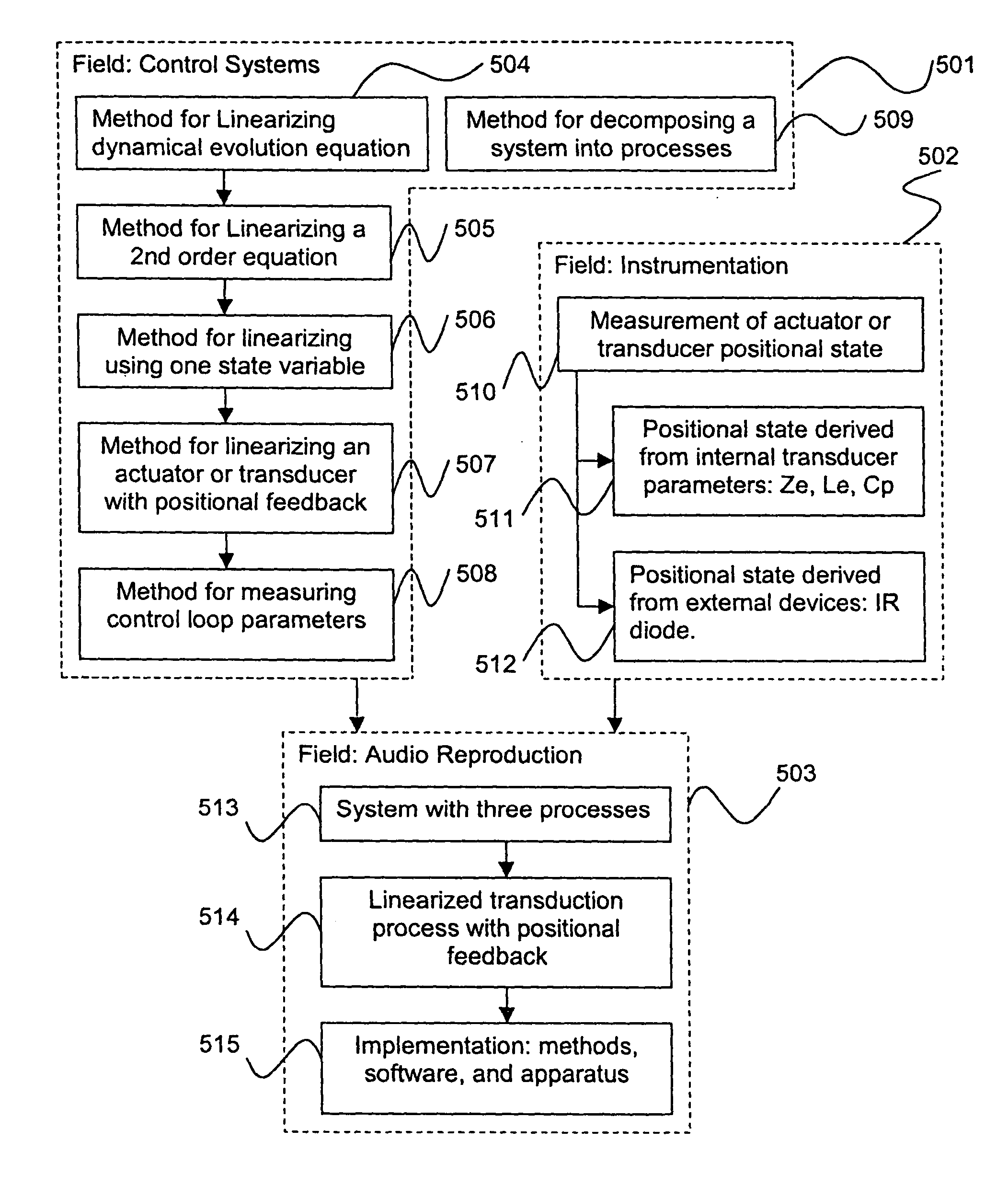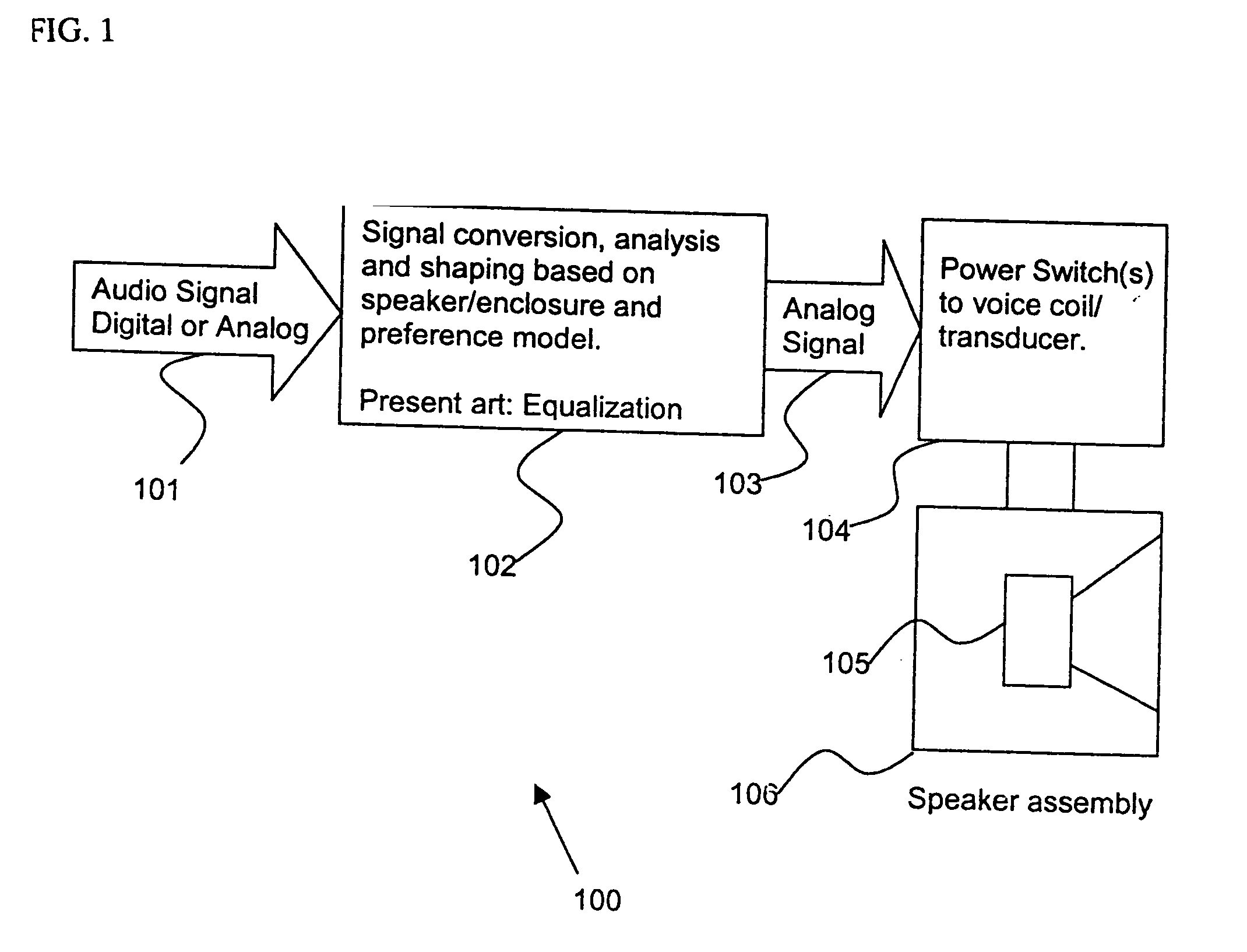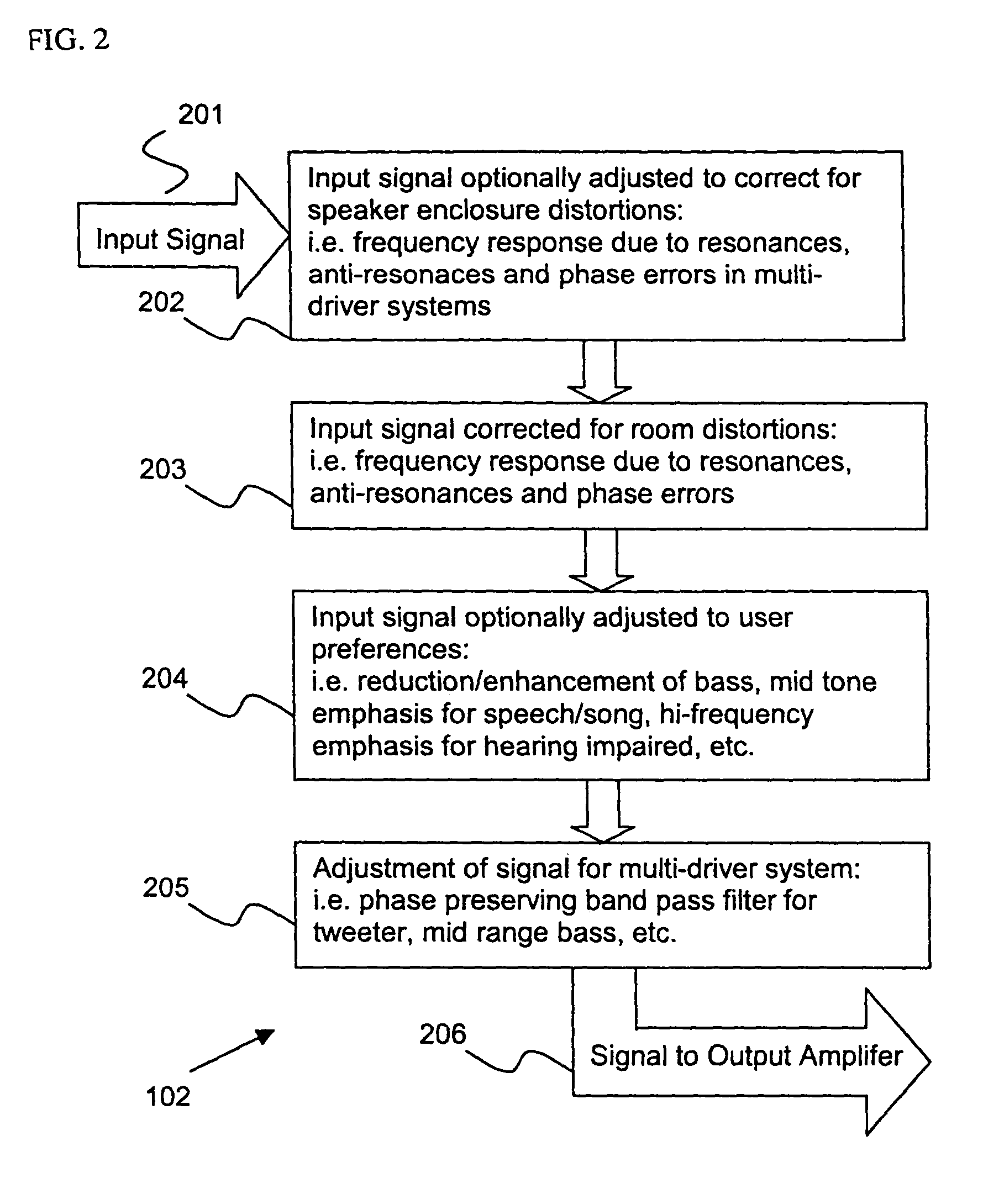Method of modifying dynamics of a system
a technology of dynamic dynamics and system, applied in the direction of transducer details, electrical transducers, electrical apparatus, etc., can solve the problems of frequency dependent errors, voice coil transducers become very distorting, and reduce the effectiveness of other corrections, so as to achieve the effect of effective impedance of coil
- Summary
- Abstract
- Description
- Claims
- Application Information
AI Technical Summary
Benefits of technology
Problems solved by technology
Method used
Image
Examples
Embodiment Construction
)
Detailed Description 1: System
Many control engineering problems require input from several fields: mathematics, physics, systems engineering, electronic engineering, and, for this disclosure, acoustics. There are a number of key concepts developed in these different fields that were required to produce the final embodiment. The relationships between the main areas of invention are illustrated in FIG. 5. To assist understanding, the areas of invention have been grouped under three different headings: control systems engineering 501, instrumentation 502 and audio reproduction 503. FIG. 5 shows how the concepts and inventions in control engineering 501 and instrumentation 502 are linked to audio reproduction 503, and how the inventions have been reduced to practice using the audio reproduction field.
An enabling invention in the area of control engineering 501 was the linearization method for dynamical equations 504 used in modeling physical systems to be controlled, such as actua...
PUM
 Login to View More
Login to View More Abstract
Description
Claims
Application Information
 Login to View More
Login to View More - R&D
- Intellectual Property
- Life Sciences
- Materials
- Tech Scout
- Unparalleled Data Quality
- Higher Quality Content
- 60% Fewer Hallucinations
Browse by: Latest US Patents, China's latest patents, Technical Efficacy Thesaurus, Application Domain, Technology Topic, Popular Technical Reports.
© 2025 PatSnap. All rights reserved.Legal|Privacy policy|Modern Slavery Act Transparency Statement|Sitemap|About US| Contact US: help@patsnap.com



